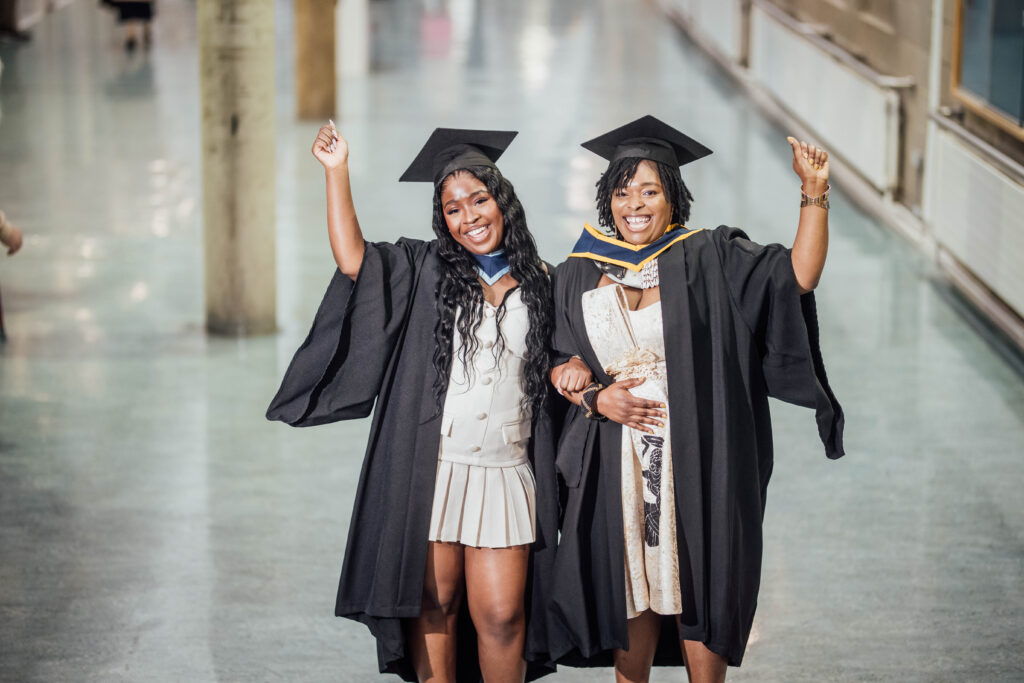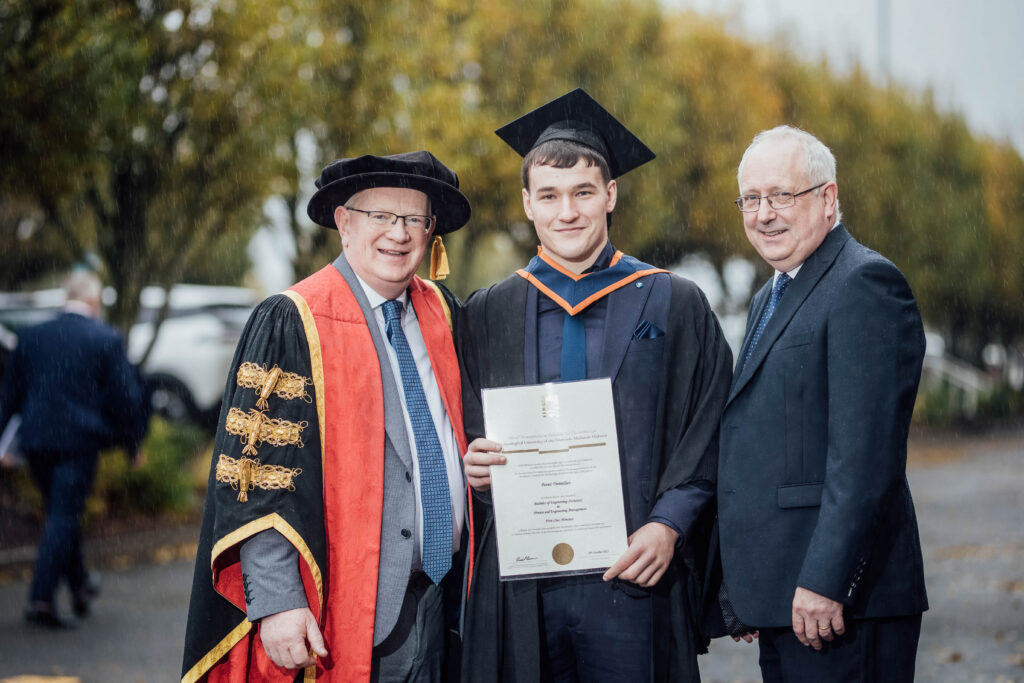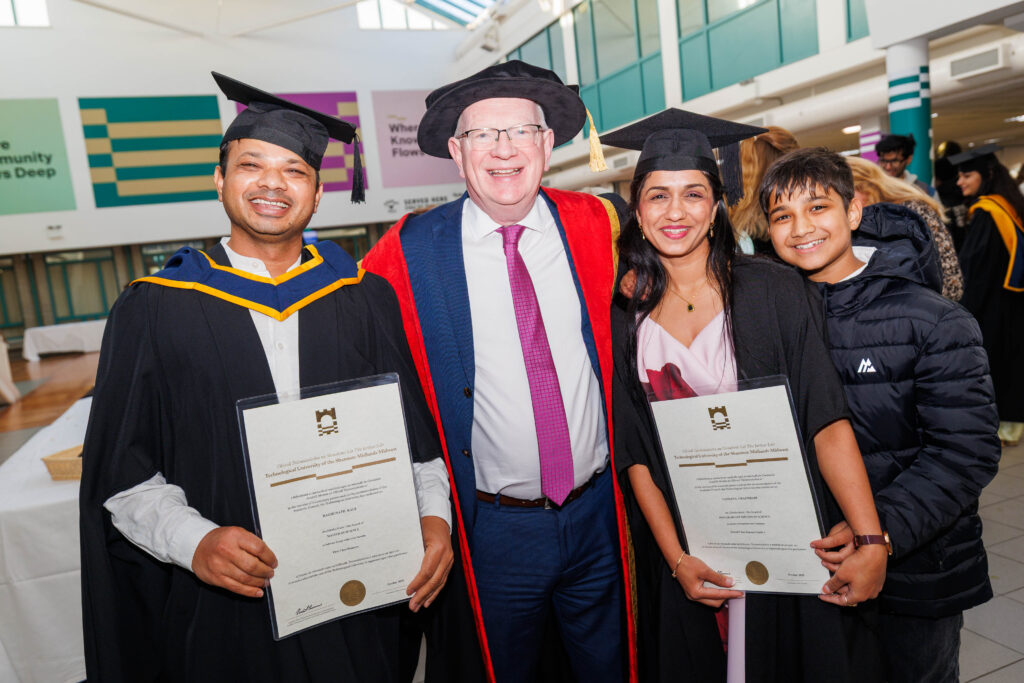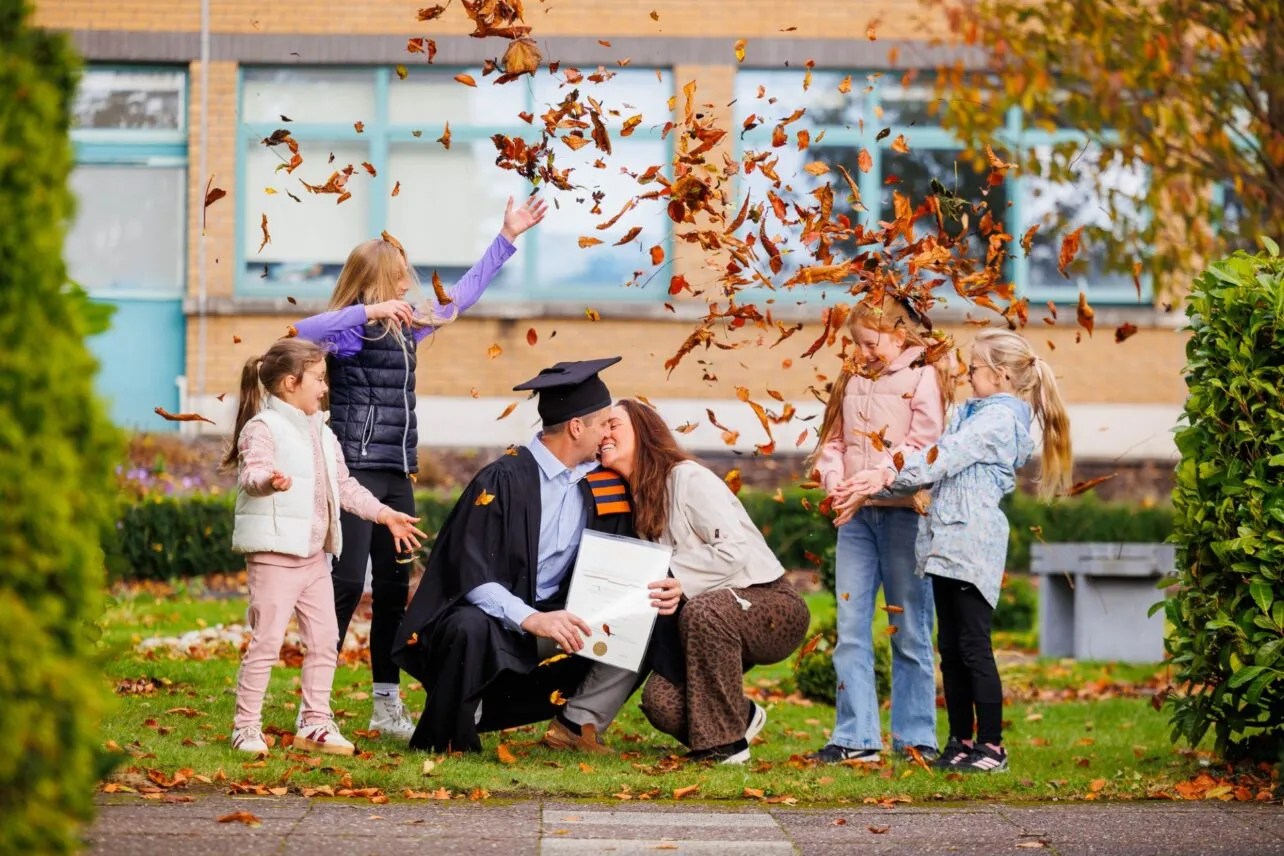Graduation ceremonies across the Technological University of the Shannon (TUS) celebrated over 3,800 students from the Class of 2025 – representing more than 50 countries – a generation entering a world reshaped by artificial intelligence, climate change, and global uncertainty.
They heard that their education has prepared them to meet these challenges with courage, creativity, and critical thinking.
This year’s graduates were among the first full cohort to complete their studies entirely within TUS, having joined the university soon after its establishment in 2021.
Addressing the graduates in Athlone and Limerick, President of TUS, Professor Vincent Cunnane, said their time as students has coincided with a period of rapid change in the world around them.
“We are living in a time of transformation — technological, environmental, political, and social. The impacts of climate change are no longer remote or abstract. They are visible in our communities, in our weather, in our economy, and in our collective awareness. Artificial intelligence is changing how we work, how we communicate, how we make decisions, and perhaps even how we see our world and our place in it. In such a world, it is easy to feel overwhelmed — to imagine that the challenges are too great, or that our individual efforts cannot make a difference. But that is not true.“
He noted that, just as the world around it has grown and evolved, so too has TUS — with technological advances and artificial intelligence reshaping how we live, work, and think.
“As a Technological University, TUS itself stands as an expression of courage — the courage to reimagine what higher education can be in 21st-century Ireland. What the world needs now — what Ireland needs now — is courage. Courage to act on what is right. Courage to think for yourself when noise and distraction are everywhere. Courage to listen, to engage, and to build bridges where others might build walls.“
He told that graduates that: “You have witnessed and contributed to the shaping of a new kind of university — one rooted in its regions, outward-looking in its ambitions, and driven by a belief that education is not just about personal success, but about shared progress.”

Among this year’s graduates were Patience Ndhlazulwana and Khanyile Maqeda, both from Zimbabwe, who were among the first cohort of Sanctuary scholars to complete their studies at TUS. The Sanctuary Scholarship supports students living in international protection or from refugee backgrounds to access higher education. The programme offers ten undergraduate scholarships each year, along with ten for learners progressing through the Access/Transition to Higher Education route.
Patience, a mother of three, graduated with a BSc (Hons) in Drug and Medicinal Product Analysis and is now employed at Pfizer’s head office in Dublin.
“I could not have afforded university without this support,” she said. “As a single parent there were tough moments, but the lecturers were amazing and support was always there when I needed it. My boys have seen what education can do — it has opened doors for me and inspired them too.”
Khanyile arrived in Ireland as a teenager with her family and has now completed her degree in Social Care Work and has enrolled in the Master’s in Social Care programme at TUS.
She said: “I would not have been able to go to university if it wasn’t for Sanctuary and TUS, so I am just so grateful. Whenever I needed help it was always there. The support here meant I could succeed. I’ve made lifelong friends, including through the African Caribbean Society, and have made great memories here.”
Another graduate was Clare senior hurler and All-Ireland medal winner Paddy Donnellan who was conferred with a First Class Honours Degree in Process and Engineering Management.

Paddy said: “For me, TUS was a brilliant experience. There was a very friendly spirit on campus. The lecturers all know your name and that really meant a lot. There’s a real community feeling here and I’m delighted to be graduating with my degree in Engineering.”
At the Athlone conferrings, Vinny Costello, from Taghmaconnell, County Roscommon, celebrated with wife Anita and their four daughters: Molly, 12; Lilly, 11; Sadie, aged eight, and Elsie, aged six.
After collecting his Postgraduate Diploma in Engineering in Engineering Management, Vinny – pictured above with his family – said: “I would be a firm believer that ‘what you put in is what you get out’ of something. It was heavy going , full on, but definitely worth it in the end.”
Also celebrating were a husband-and-wife duo who both achieved success in their studies. Raghunath Kale was rewarded with a Masters of Science in Software Design with Cyber Security, while his wife Vandana celebrated with a Postgraduate Diploma In Science in Quality Management and Validation.
“We chose to embark on this journey together, not only to better ourselves but also to set a benchmark for our children. Achieving these milestones side by side has been deeply rewarding,” said Raghunath.
The Higher Education Authority (HEA) has, on two occasions, identified TUS as the university with the highest graduate employability rates in Ireland.
Prof. Cunnane said: “TUS graduates have the highest graduate employment rates in the entire country. This is not an accident — it is because employers know that you are not just qualified, but capable, adaptable, and ready to learn. You are part of a virtuous cycle — one that strengthens individuals, communities, and regions together. This is how education transforms not just lives, but places.”
Josephine Feehily, Chair of the TUS Governing Body, said that the world graduates are entering what “can feel, at times, a little unsettled”.
While “the pace of change is dizzying”, she said: “That same world is full of opportunity. It asks for courage, adaptability, and, above all, a strong sense of values to keep you grounded when things around you appear to shift so quickly.
“Artificial intelligence will shape your world and your work in ways we can barely imagine. Some of it will be astonishingly positive, some of it will challenge our understanding of what it means to be human, and much of it will demand that we think deeply, ethically, and critically about the future we are creating.”
“Which brings me to something even more important than technical skill or employability: the ability to think critically and to question intelligently.
“In a noisy, fast-moving world, these are the skills that will help you discern truth from noise, substance from distraction. They will help you use AI — and not be used by it. They will help you navigate a world that often rewards immediacy over reflection and certainty over doubt
“Hold on to those questioning habits. They are the mark of educated, thoughtful people — and they will serve you, and the society in which you live, immeasurably well.
Professor Cunnane closed with a message that captured the spirit of the Class of 2025:



